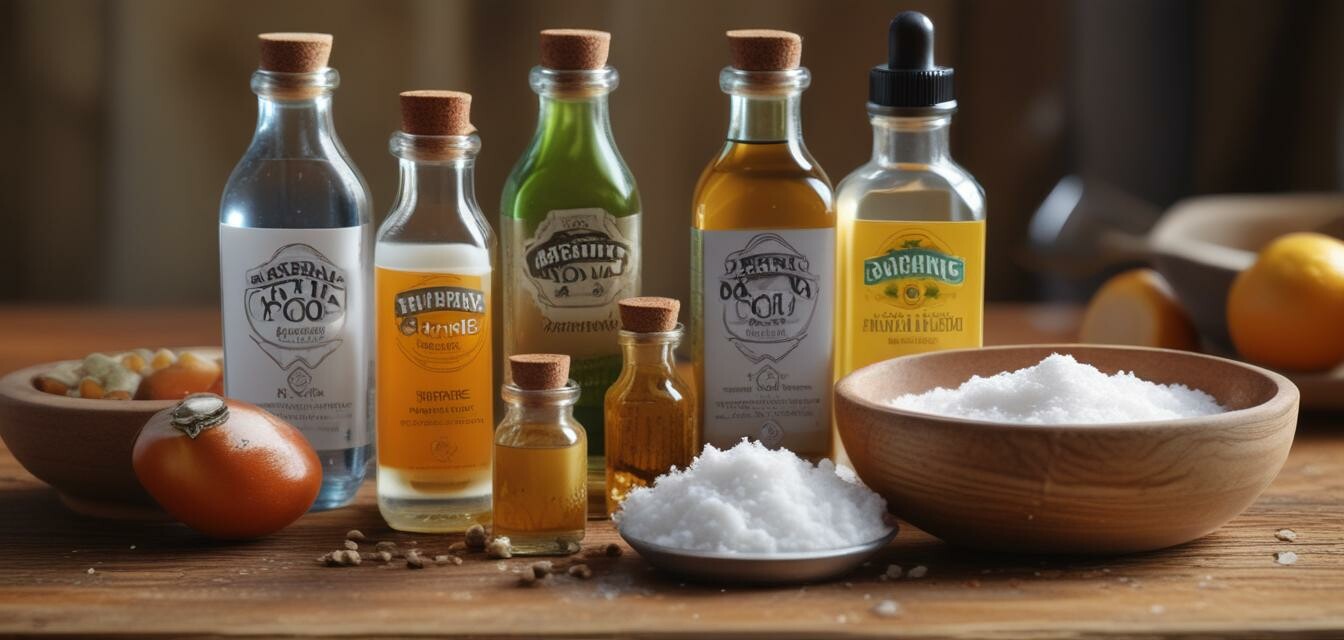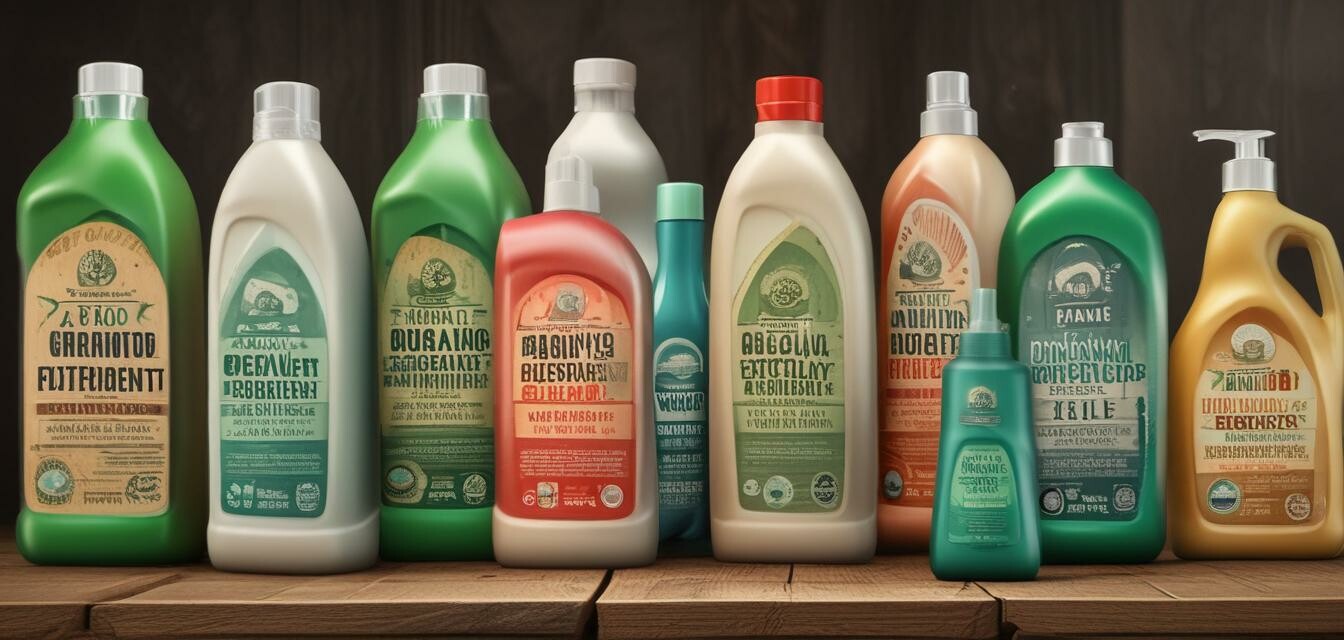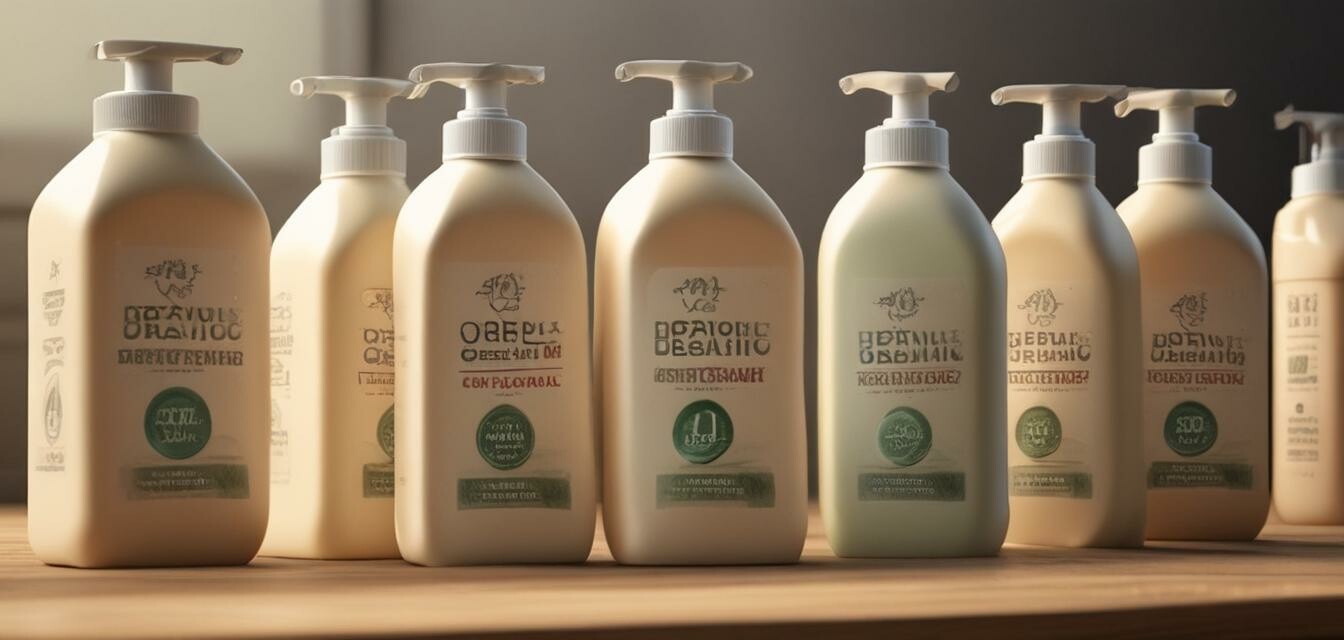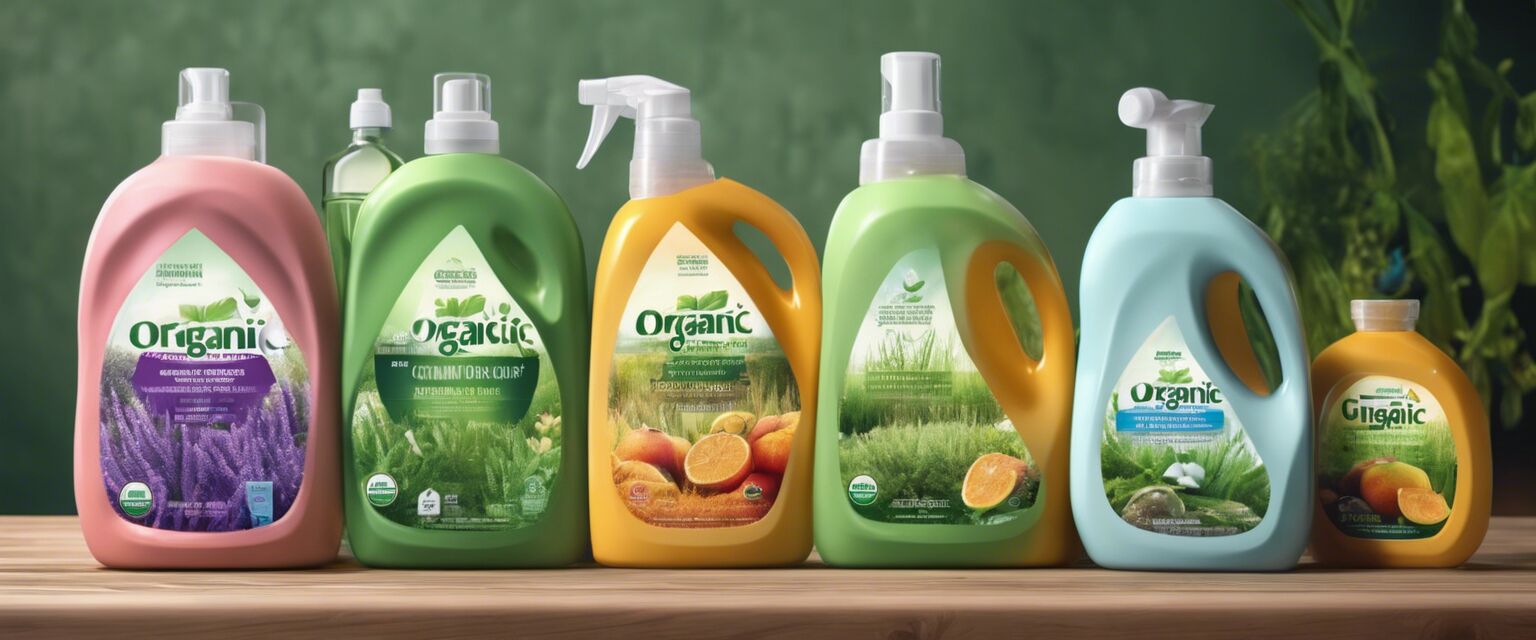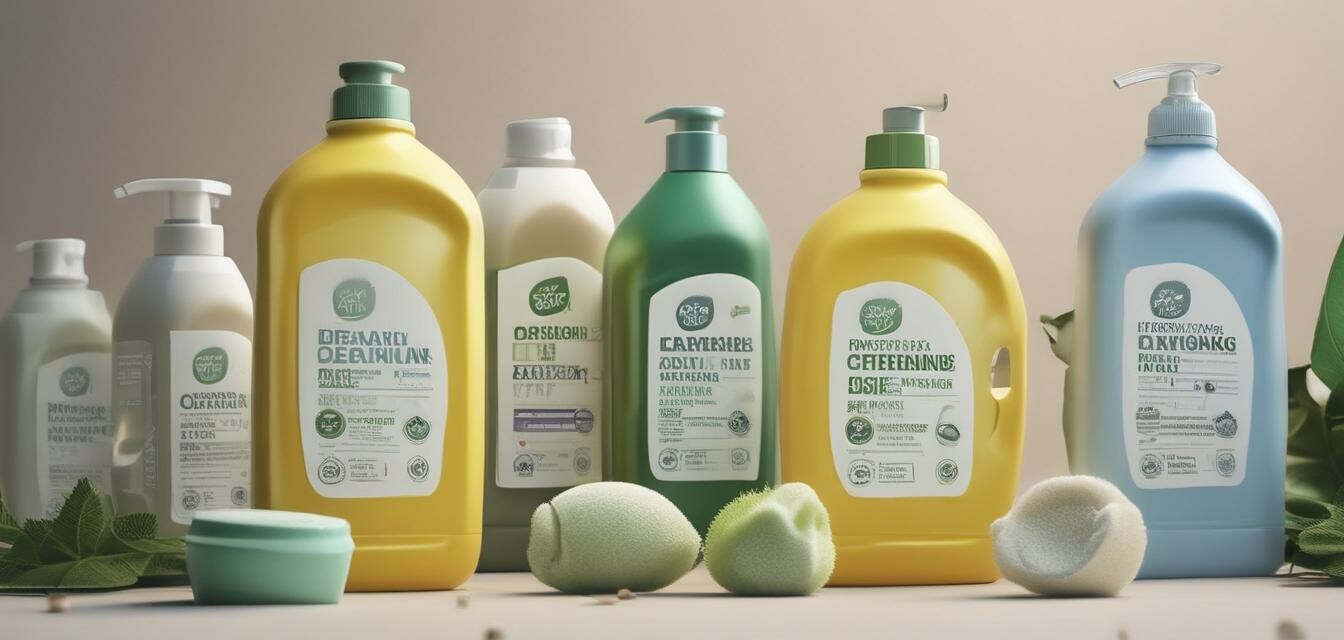
Organic Detergents vs. Conventional Detergents
Key Takeaways
- Organic detergents are made from natural ingredients, while conventional detergents may contain synthetic chemicals.
- Environmental impact is generally lower with organic detergents.
- Performance can vary between organic and conventional options, depending on the formulation.
- Cost may be higher for organic detergents, but they are often safer for sensitive skin.
In today's world, choosing the right cleaning products is essential for both personal health and the environment. This article will explore the differences between organic and conventional detergents, helping you make an informed decision for your cleaning needs.
Understanding organic detergents
Organic detergents are formulated using natural ingredients, such as plant-based surfactants and biodegradable compounds. These products are designed to clean effectively while minimizing their impact on the environment.
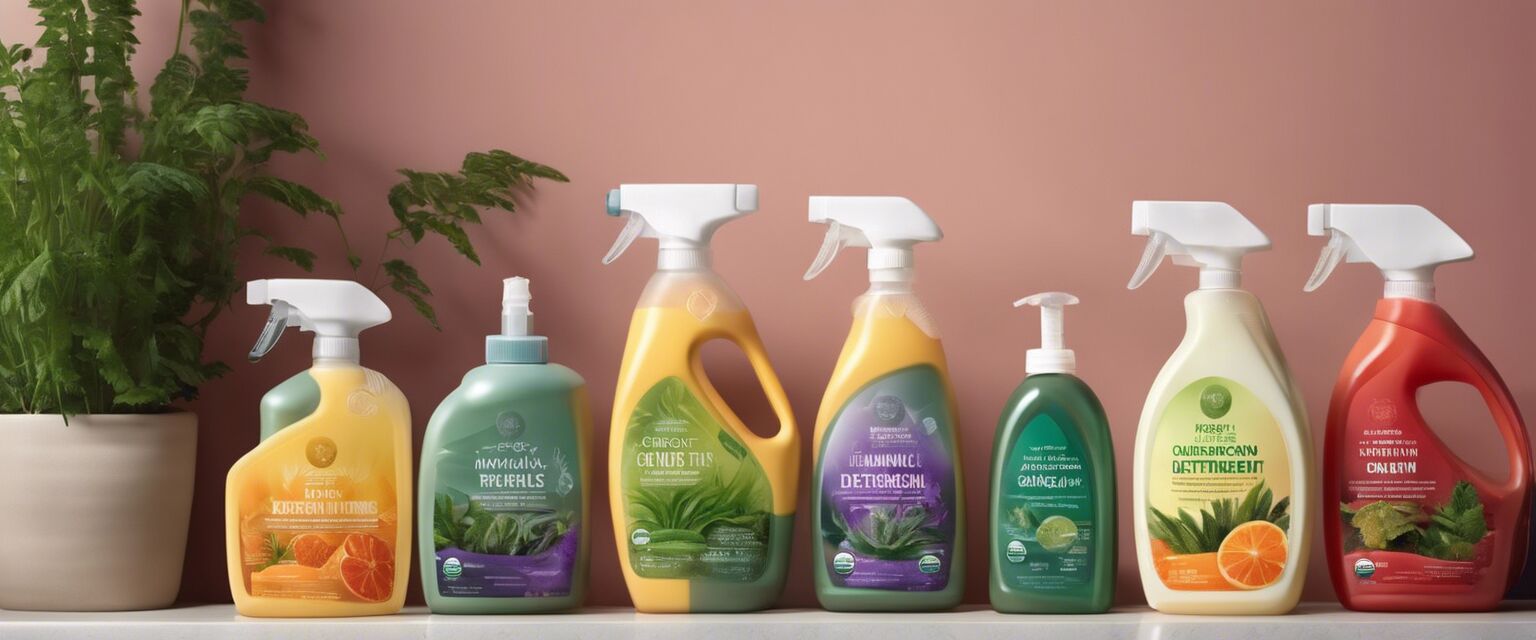
Benefits of organic detergents
- Fewer harmful chemicals
- Biodegradable ingredients
- Safer for sensitive skin
- Less environmental pollution
Understanding conventional detergents
Conventional detergents often contain synthetic chemicals that can provide powerful cleaning results. These products are widely available and come in various formulations to tackle different cleaning challenges.
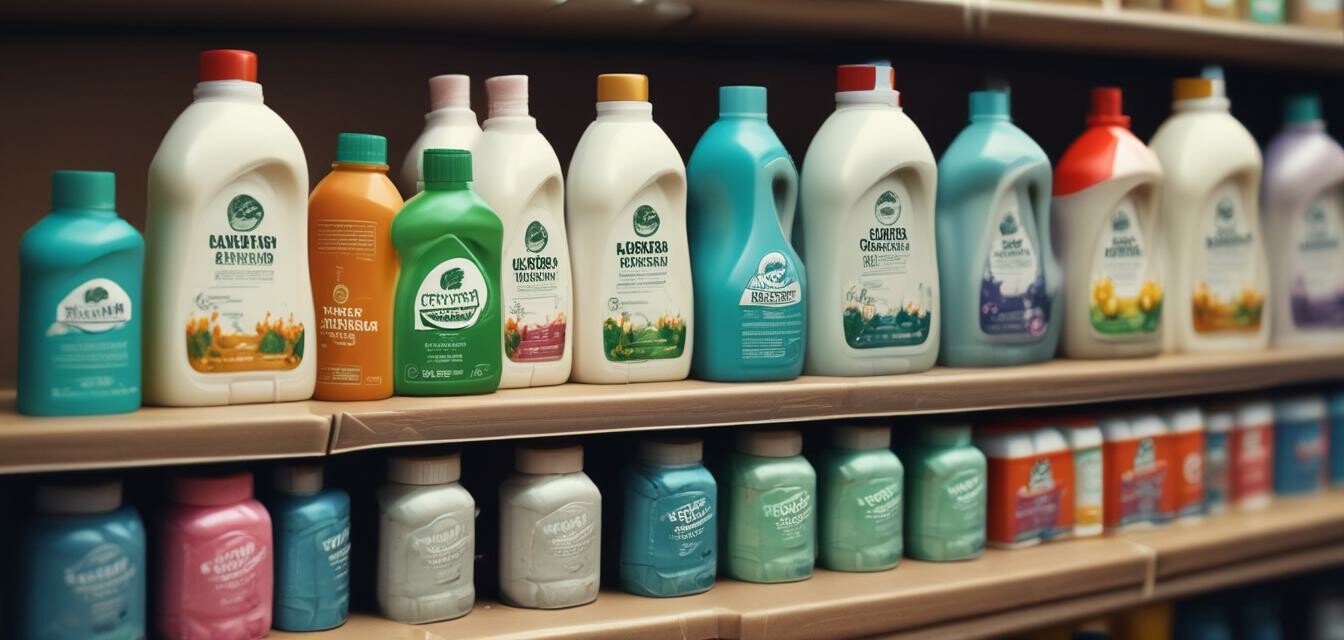
Benefits of conventional detergents
- Highly effective on tough stains
- Widely available and affordable
- Variety of formulations for specific needs
Comparing the two types of detergents
| Feature | Organic Detergents | Conventional Detergents |
|---|---|---|
| Ingredients | Natural, plant-based | Synthetic chemicals |
| Environmental impact | Lower | Higher |
| Effectiveness on stains | Varies | Highly effective |
| Price | Generally higher | Generally lower |
| Skin safety | Better for sensitive skin | May cause irritation |
Choosing the right detergent for your needs
When deciding between organic and conventional detergents, consider the following factors:
Tips for beginners
- Identify your cleaning priorities: Are you more concerned about environmental impact or cleaning effectiveness?
- Check for certifications: Look for eco-friendly certifications on organic products.
- Read reviews: Customer feedback can provide insights into product performance.
- Start small: Try a few different brands to see which works best for you.
- Consider your budget: Weigh the costs against the benefits of each type.
Environmental impact comparison
The environmental impact of cleaning products is a growing concern among consumers. Organic detergents typically have a lower carbon footprint and produce less waste, making them a more sustainable choice. In contrast, conventional detergents may contribute to pollution and ecological damage.
Biodegradability
Organic detergents are generally more biodegradable, breaking down into natural substances that cause less harm to the ecosystem. Conventional detergents, on the other hand, may contain ingredients that persist in the environment, potentially leading to pollution.
Water usage
Producing organic detergents often requires less water compared to conventional alternatives, making them a more eco-friendly option in the long run.
Cost analysis
One of the major factors to consider when choosing between organic and conventional detergents is the price. Organic detergents tend to be more expensive due to the cost of sourcing natural ingredients. However, many consumers are willing to pay a premium for the added benefits of safety and environmental impact.
Pros of organic detergents
- Safer for the environment
- Gentler on skin
- Supports sustainable practices
- Less chemical exposure
Cons of organic detergents
- Higher cost
- Effectiveness can vary
- Limited availability
Pros of conventional detergents
- Lower cost
- Wide availability
- Consistent cleaning performance
Cons of conventional detergents
- Potential skin irritants
- Higher environmental impact
- May contain harmful ingredients
Final thoughts
Ultimately, the choice between organic and conventional detergents comes down to personal preference and priorities. Both types have their own set of advantages and disadvantages. Whether you prioritize environmental impact, cleaning effectiveness, or skin sensitivity, there is a detergent option available to meet your needs.
For more information on specific types of cleaning products, check out our sections on All-Purpose Cleaners, Bathroom Cleaners, Dishwashing Liquids, Floor Cleaners, and Glass Cleaners.
